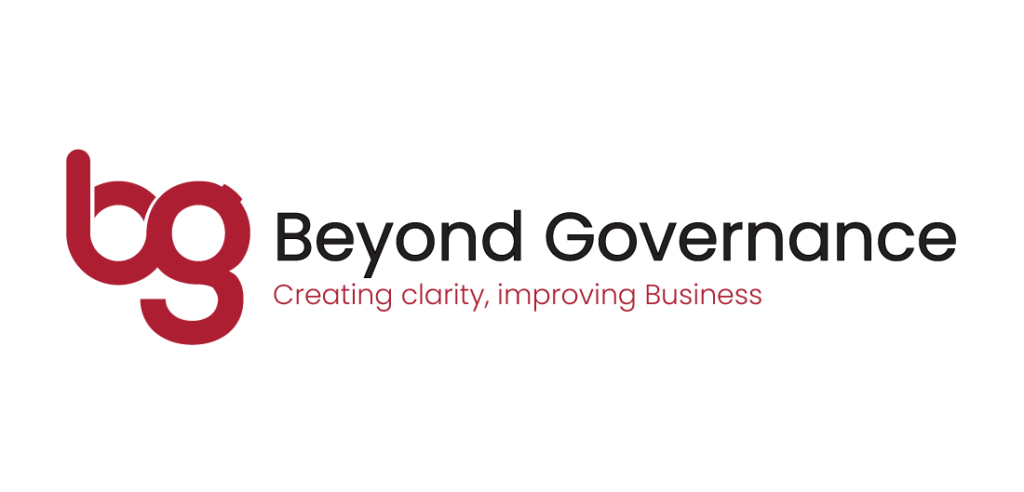Busy but not productive
Everyone is busy and being busy is probably what made you successful in the first place. All your achievements and milestones, whether personal or organisational, came from hard work and commitment. There are probably a lot of people like you in your organisation – driven, focused and resourceful. As a business leader, you need people to deliver, but also to stay motivated and continue to develop. This is one of the tricks a leader has to learn.
There is a risk, though, that too much focus means that the opportunities and the threats which may often be obvious, get missed. This is why many organisations are looking at their corporate governance framework to judge whether it’s delivering for their people, providing both a safety net for when things go wrong, and a lean and agile network to support a fast, proactive approach to decision-making. It should also enable people to ask the questions that many are often too afraid to voice for fear of looking stupid or think someone else would have thought of already. This is how things get missed.
Improved governance isn’t expensive
Governance is a growth industry and, in its various forms, is with us to stay. Whether your organisation is subject to regulation, or you adhere to a governance code, there is no getting away from the ongoing need to “comply or explain”. Improving the quality of your governance need not be expensive though. Often, a subtle re-alignment of what’s already there is all that’s necessary.
Good governance prevents chaos but can’t stop failures due to its people within the organisation if they don’t do the right thing themselves. Companies fail all the time for many reasons, such as obsolescence and changing preferences – this is not the same as “corporate failure” though.
Identifying organisational pain points and friction
Many governance professionals see themselves nowadays as problem solvers. Corporate governance in particular should be all about delivering solutions, not adding to the burden. How does it look in your organisation from where you are sitting? Do you think that everyone shares your view? In this context, governance can be used to identify pain points and friction and, crucially, do something about it.
Governance can also give you the tools to measure intangibles like communication, critical thinking and behaviour. What often holds people back is not a lack of ability but a lack of the right tools, and sometimes language, something that can be fixed easily but only if the need reaches the ears of the decision makers. Governance professionals are fluent in the language of the boardroom so are able to decipher and translate for those outside of that bubble. This is a key part of aligning culture with performance and effective succession planning.
ESG and sustainability
The focus on ESG and sustainability has led to more corporate reporting and public disclosure much of which can be seen as a distraction from the day job. Whereas everyone should want their organisation to be well run and healthy in the long term, most people are paid to make a difference and add value to the organisation they work for on a day-to-day basis.
When talking about governance, and corporate governance in particular, it’s important to be authentic. Be clear on what matters to you and focus on what you can control rather than worry about external factors you cannot. This will then influence what you write about in your annual report and financial statements. It needs to be your story, not what you think others are expecting to read.
The board’s legal responsibility
As a member of the Board, you have a legal responsibility to do the right thing and, on the whole, it’s up to you how you do it.
People often associate governance with meetings and this is true to a certain extent as governance is there to support the decision-making process. However, to be effective, a meeting must have a purpose. Many organisations suffer from “excessive meeting syndrome” whereby every new development, legal or regulatory requirement or project brings about a new committee, forum or working group. It’s often easier to set up something new rather than give the responsibility to something already in place.
Meetings are expensive
The point is that meetings are expensive. The more senior, and, therefore, more well paid you are, the more time you tend to spend in meetings. How many of these are necessary? How many very well-paid hours are spent discussing what needs to be done rather than getting on and doing it?
That’s not to say all meetings are a waste of time and money. They’re not. However, every CFO will recognise how this can be a problem. What can be done?
You’ll be familiar with the established governance framework of the Board delegating responsibility to Audit, Nomination, Remuneration Committees, amongst others, using documented terms of reference. Decisions made at these committees are recorded in the minutes and then reported to the Board. Formal meetings have agendas, chairs, matters arising and resolutions. This is core corporate governance and is appropriate and essential for effective, high-level decision making.
Avoid bureaucracy
The rest of the organisation does not need to function in this way to be effective though. Unfortunately, many have tried to replicate the governance structure at the top in their own department.
If a current meeting taking place in your organisation is essentially a team meeting then call it that. It’s right for your Treasury, Tax and Planning teams, for example, to get together and discuss what’s going on but you don’t always need terms of reference and minutes to make them worthwhile. It all depends on the outputs and where the decision-making authority comes from.
Conclusion
To recap, the whole point of a meeting is to facilitate collective decision making. If no decisions are being made, it’s not a “meeting” in the formal sense – it’s a talking shop, there to build relationships and keep people connected. Governance will always be about people and how they interact but the disciplines and controls governance brings should always be applied appropriately and realistically or valuable resources such as time and money will be wasted.




